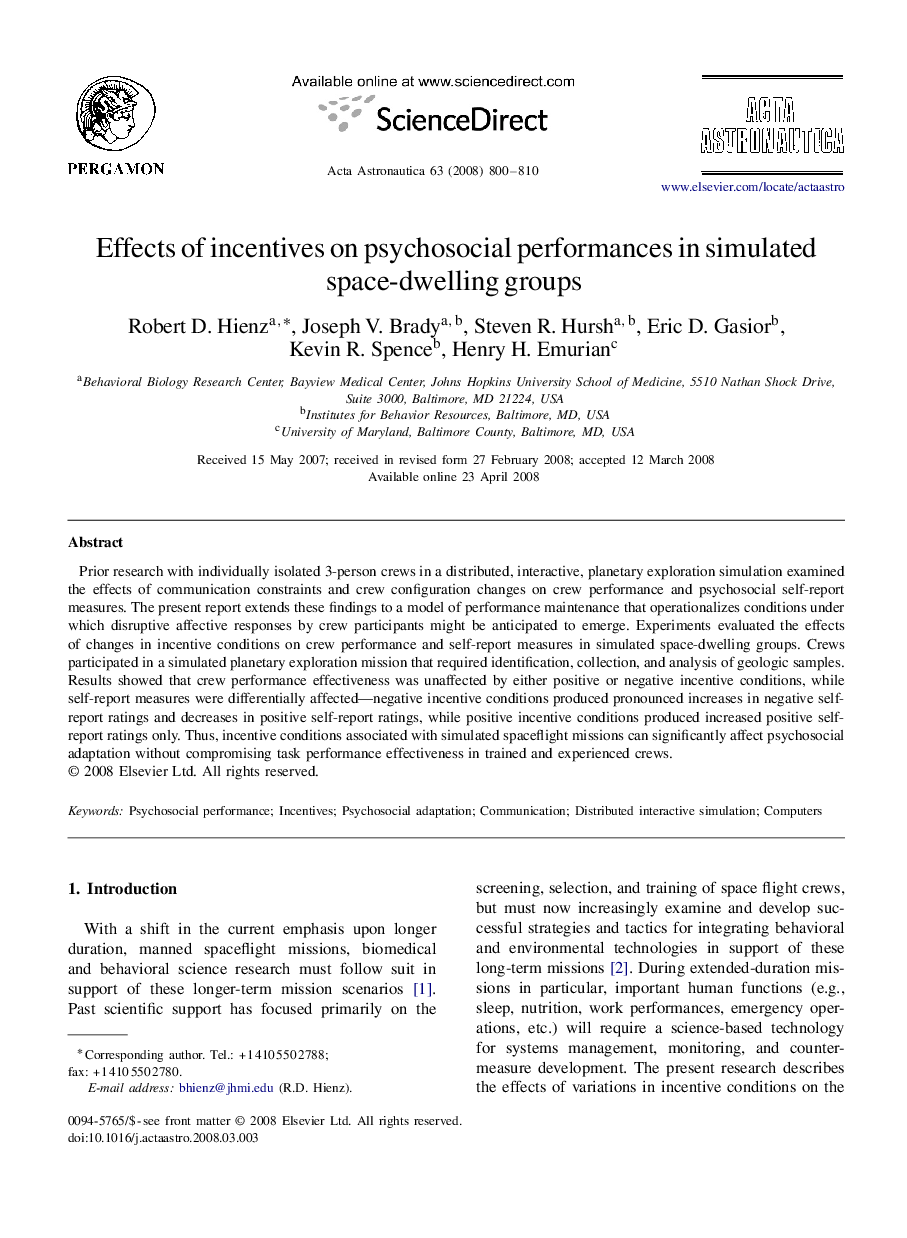| Article ID | Journal | Published Year | Pages | File Type |
|---|---|---|---|---|
| 1716828 | Acta Astronautica | 2008 | 11 Pages |
Prior research with individually isolated 3-person crews in a distributed, interactive, planetary exploration simulation examined the effects of communication constraints and crew configuration changes on crew performance and psychosocial self-report measures. The present report extends these findings to a model of performance maintenance that operationalizes conditions under which disruptive affective responses by crew participants might be anticipated to emerge. Experiments evaluated the effects of changes in incentive conditions on crew performance and self-report measures in simulated space-dwelling groups. Crews participated in a simulated planetary exploration mission that required identification, collection, and analysis of geologic samples. Results showed that crew performance effectiveness was unaffected by either positive or negative incentive conditions, while self-report measures were differentially affected—negative incentive conditions produced pronounced increases in negative self-report ratings and decreases in positive self-report ratings, while positive incentive conditions produced increased positive self-report ratings only. Thus, incentive conditions associated with simulated spaceflight missions can significantly affect psychosocial adaptation without compromising task performance effectiveness in trained and experienced crews.
